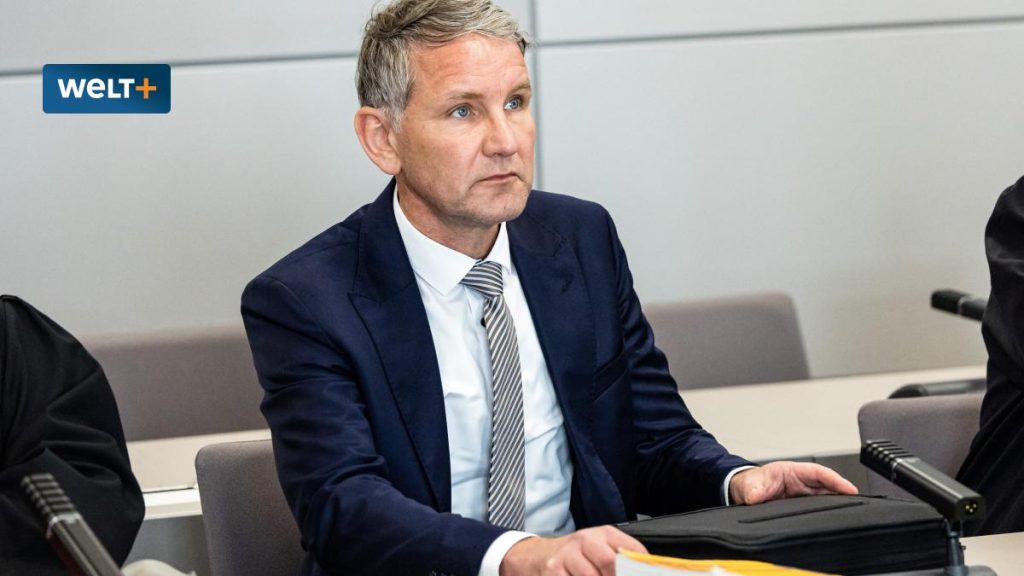Thuringian AfD leader Björn Höcke is facing accusations of using the Nazi slogan “Alles für Deutschland” during a court hearing. Höcke denies the allegations, claiming to be a law-abiding citizen and maintaining his innocence. However, prosecutors are not convinced and are presenting additional statements made by Höcke with Nazi references. This controversial case has sparked a debate in Germany over the boundaries of free speech and the rise of far-right extremism within the AfD party.
Höcke’s trial comes at a time when the AfD is facing increased scrutiny for its connections to far-right ideologies and its rhetoric against immigrants and minorities. The party has been widely criticized for its anti-establishment and nationalist stance, with some accusing it of promoting xenophobia and hatred. The accusations against Höcke further highlight the party’s descent into far-right extremism and raise questions about its commitment to democratic values and principles.
The use of Nazi slogans and symbols is strictly prohibited in Germany, where the memory of the Holocaust and the atrocities committed by the Nazi regime remain a sensitive and contentious issue. Any association with Nazi ideology is highly controversial and can lead to severe legal consequences. The allegations against Höcke have reignited concerns about the resurgence of neo-Nazism and the far-right in Germany, as well as the need for stronger measures to combat extremism and hate speech.
Höcke’s defense team argues that he was not aware of the historical significance of the slogan “Alles für Deutschland” and that he did not intend to reference Nazi ideology. They claim that Höcke’s statements were taken out of context and misinterpreted by the prosecution. However, the prosecution maintains that Höcke’s use of Nazi references was deliberate and part of a pattern of behavior that aligns with far-right extremist views.
The outcome of the trial will not only determine Höcke’s legal fate but also have broader implications for the AfD and the political landscape in Germany. If Höcke is found guilty, it could further damage the party’s reputation and lead to internal divisions within the AfD. On the other hand, if he is acquitted, it may embolden the party’s far-right wing and reinforce its anti-establishment and nationalist agenda. The trial is closely watched by politicians, activists, and the public, as it reflects the ongoing struggle to confront the legacy of the past and uphold democratic values in the face of rising extremism.
The controversy surrounding Björn Höcke and the AfD underscores the challenges facing Germany in addressing the rise of far-right extremism and the spread of hate speech. The case highlights the delicate balance between freedom of speech and the protection of democratic norms, as well as the need for constant vigilance in combating radical ideologies. As the trial unfolds, the debate over the limits of political discourse and the boundaries of acceptable conduct will continue to shape the political landscape in Germany and beyond.


